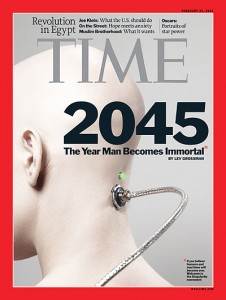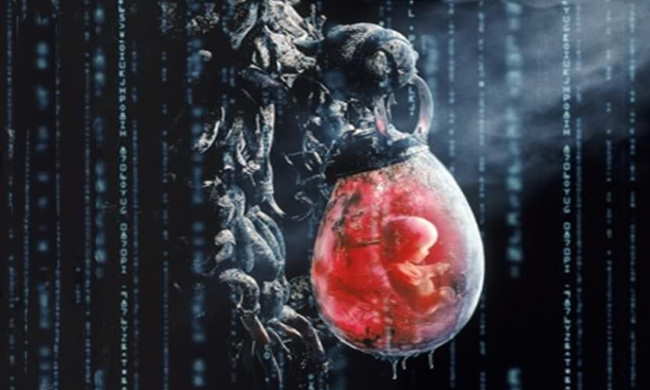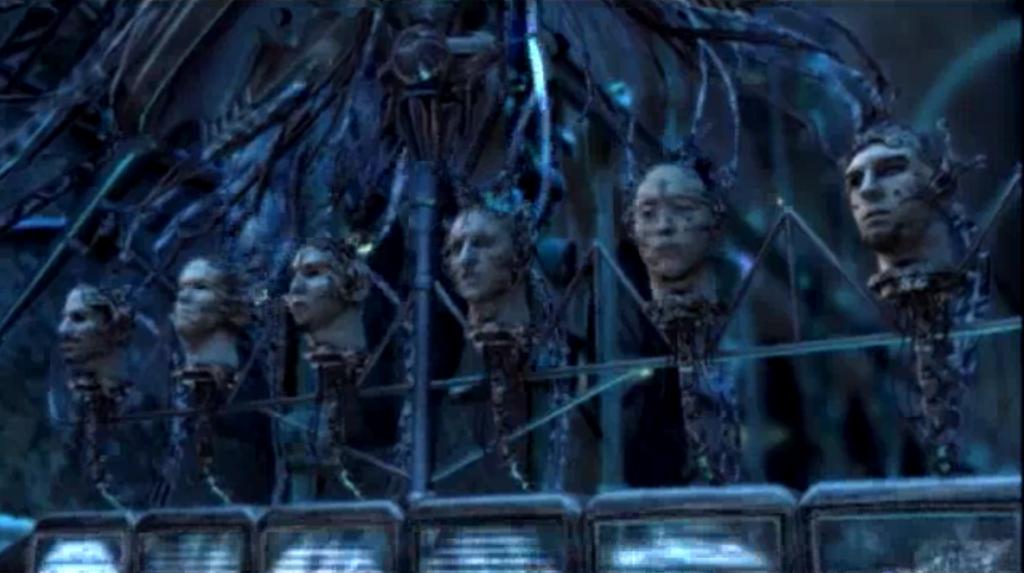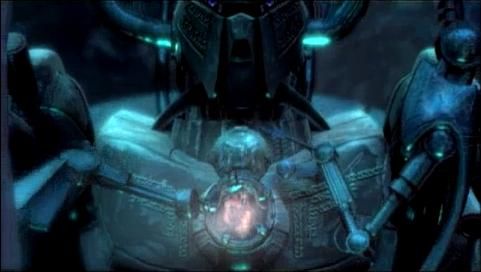sin-gu-lar-i-ty: n: The moment when technological change becomes so rapid and profound, it represents a rupture in the fabric of humanity.
The cover of the February 21st issue of Time Magazine asks the singular question that all of the theory of our class is in someway concerned with; what are the boundaries between humanity and technology? Lev Grossman’s article is primarily about Raymond Kurzweil and a movement of technologists called the “singularians”. Kurzweil has spawned this particular movement with his 2005 book entitled The Singularity is Near in which he argues that the speed of technological advancement is exponential and by investigating technology since the agricultural revolution eight thousand years ago that we can track human advancement and see that it has followed a very smooth exponential curve. Kurzweil believes that this accelerating curve will lead us to a type of hybrid humanity where humans and computers are no longer distinguishable sometime around the year 2040. One of the main thoughts that ground the singularian movement is their belief that death is avoidable, that immortality is a very real technological problem that can be solved. One of the most interesting sections of the articles is about the degeneration of telomeres in human DNA. “[I]t’s well known that one cause of the physical degeneration associated with aging involves telomeres, which are segments of DNA found at the ends of chromosomes. Every time a cell divides, its telomeres get shorter, and once a cell runs out of telomeres, it can’t reproduce anymore and it dies” (47). In November 2010, a group Harvard Medical School researchers published in Nature that they “administered telomerase”, an enzyme that reverses telomere degeneration, “to a group of mice suffering from age-related degeneration. The damage went away. The mice didn’t just get better, they got younger” (47). This is a huge step ahead for the idea of immortality and one in which the singularians have grasped onto as the first real step towards a life that never ends. They believe that the pace at which technology is advancing will lead us to the point where our bodies are no longer necessary, where the processes that make up our perceived “essence” will be downloadable, that we will escape the “meat” that is our bodies and live forever. To read the whole article go to http://www.time.com/time/health/article/0,8599,2048138,00.html . In terms of posthumanism, Kurzweil believes that this is not something reserved for theory, that the actual moment where humanity as we know it ceases to exist is decades away, not centuries, and that we must prepare now for what will come; we must be ready for the singularity. Believe what you will, but Kurzweil makes a pretty convincing argument for what is to come. I have read Kurzweil’s book (all 1000 pages) and I am left a little skeptical of the way he arranges his data to show such smooth curves, but this objection aside, technology is expanding in incredible ways and if what used to take decades now takes years, then the singularity may in fact be near.
« Interfaciality and Other Food For Thought Robert Mitchell and the Readymade »







